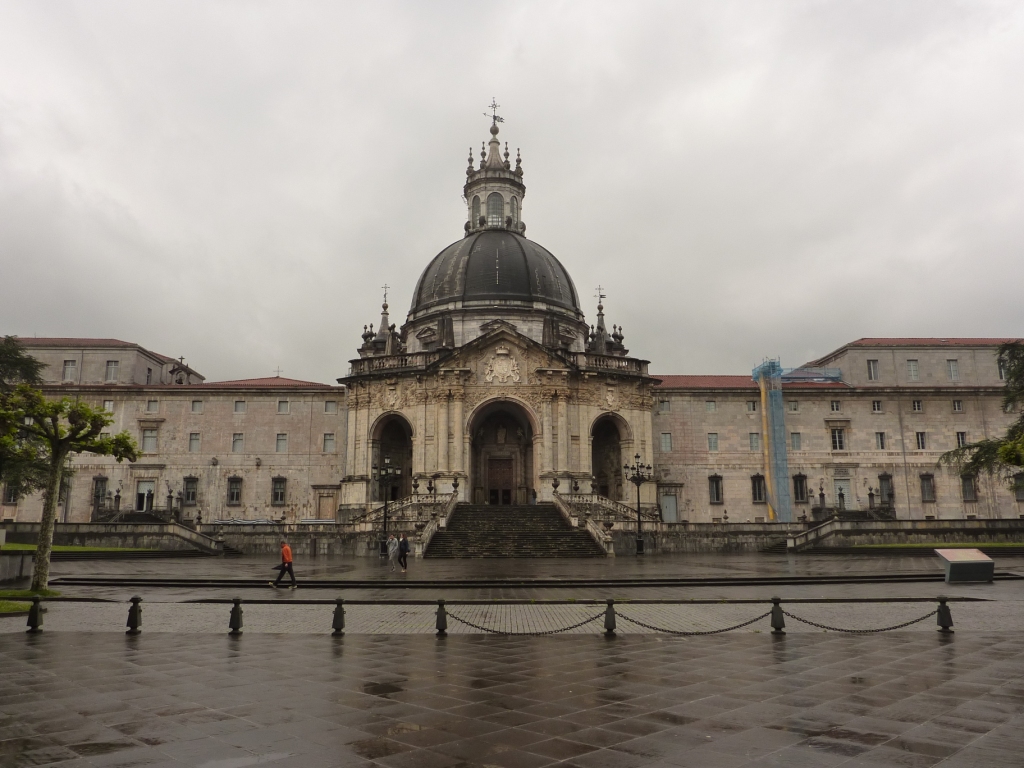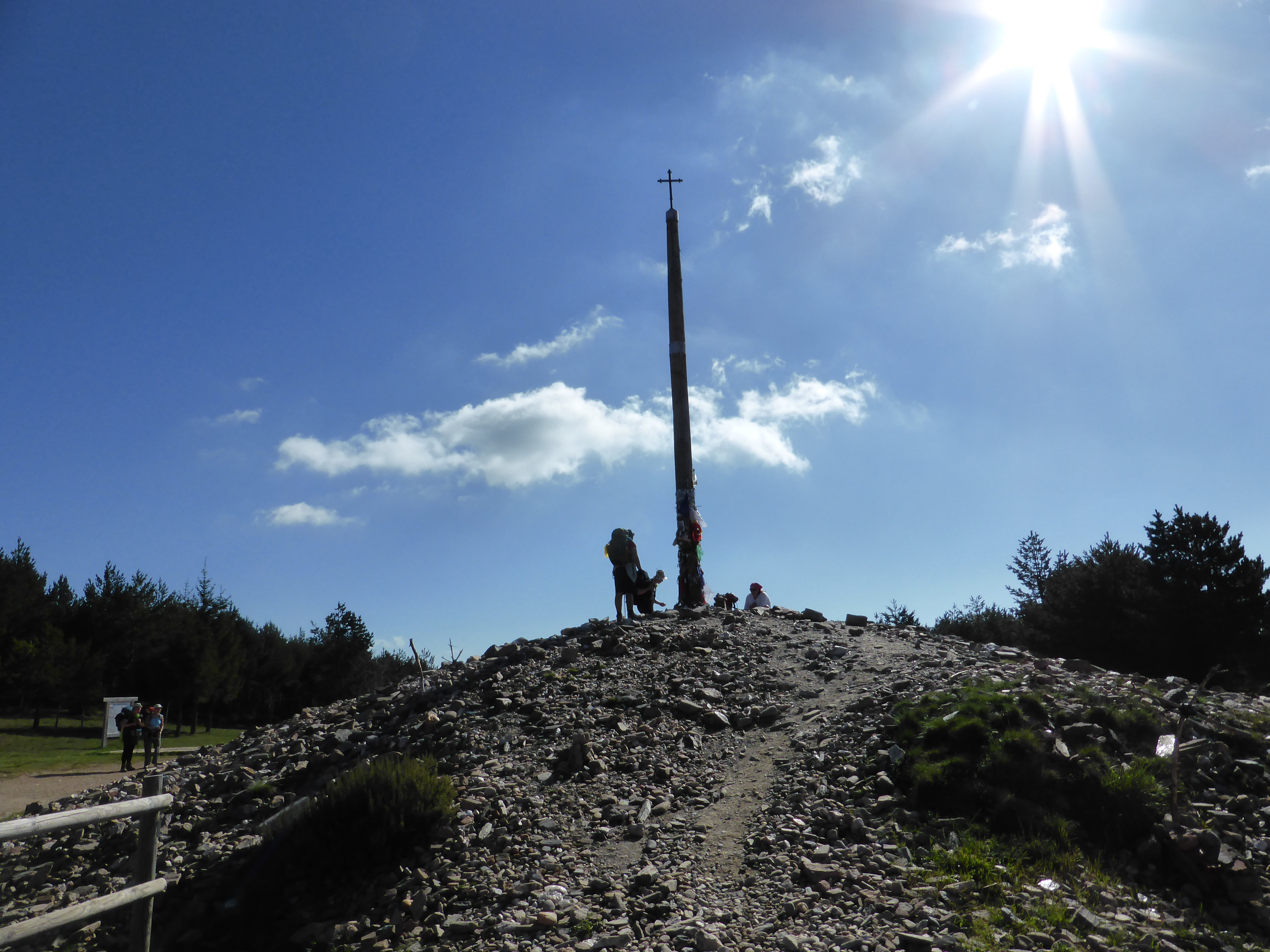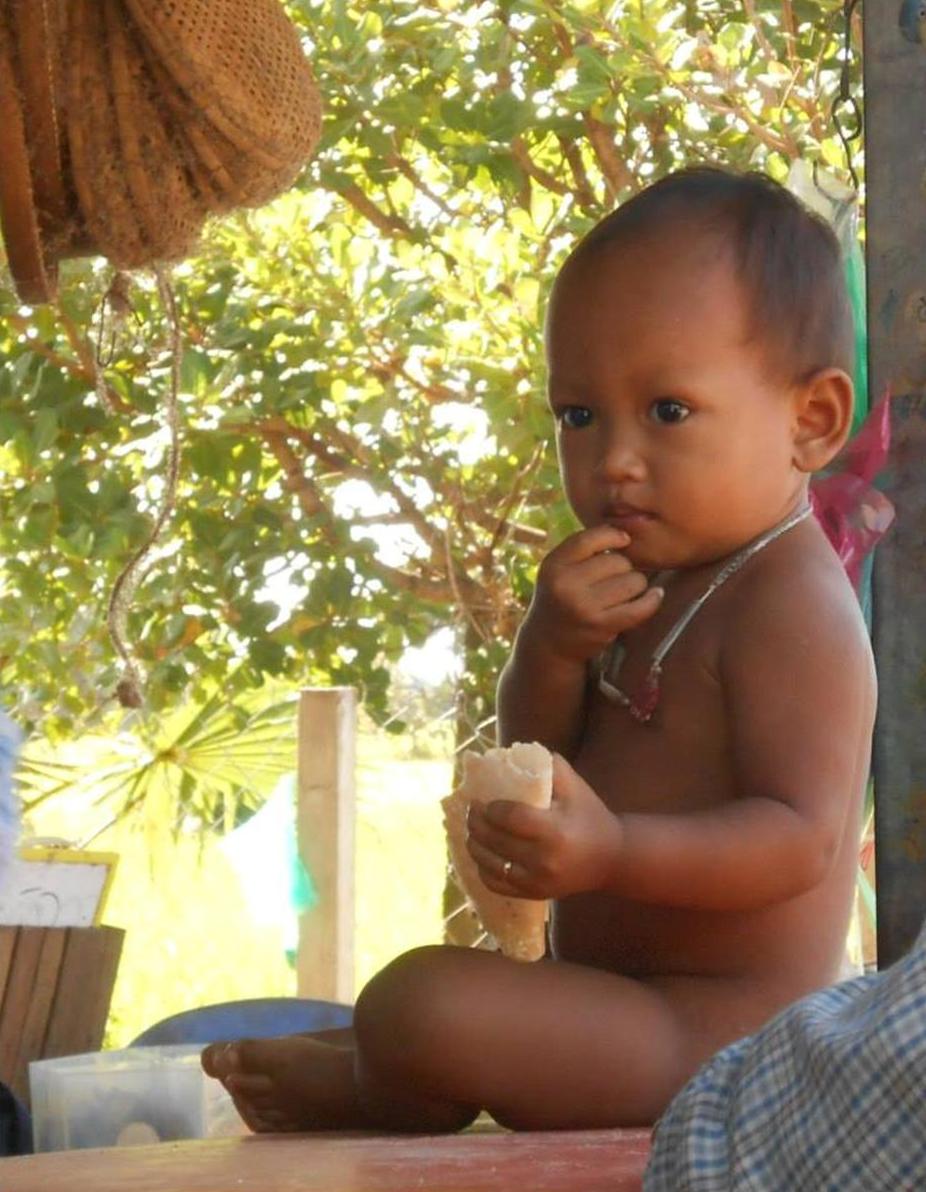It’s normal to cry on the Camino to Santiago.
The gift of tears.
I came across this in a Blog on the Camino to Santiago:
“Then a strange thing happened. I don’t know if it was the effect of the wine after 2 nights’ lack of sleep, or whether I was touched by the kindness of strangers, or whether I was charged by the many emotions I’d felt on this, my 1st day of pilgrimage. But tears welled up inside me and I wept like a child. Jean-Marc patted me on the arm reassuringly, a wise and benign expression on his face. “Don’t worry. It’s quite normal,” he said.”

Cows and elephants shed tears when a calf dies, according to many who work with them. This is denied by most scientists.
On the Camino de Levante in Febraury 2011 I met a seasoned Dutch pilgrim. I called him “the Bishop of the Walking Church,” Bishop Joannes. He had been walking Caminos for many years but with a good space between each because of his many commitments. The Bishop was a man of great wisdom and, as with all such people, he was very open and enquiring. We did not walk together because we shared the desire to walk alone but we met up from time to time over nearly 1000km. One evening he said to me, “You know, John, I have this strange experience. I went into a church and prayed. Then suddenly I was filled with tears. I was not sad but full of tears, sobbing. What is this?”
Joannes was describing an experience I, too, have had from time to time. It is also one which many pilgrims have described to me, having encountered it for the first time on the Camino.
What is the gift of tears?
The experience usually comes unexpectedly but often in a moment of silence when we are still. A powerful emotion arises within us, often seemingly unconnected with any particular event or thought, but can be brought about by a sense of place, or wonder. This wave of emotion seems to come from the very depth of our being. It is neither pure sadness nor pure joy, but both. We cry, sob, weep. It can last for a minute, or five, or ten. Afterwards we might feel like asking, “What was that?” We can feel physically drained but buoyed up in spirit.
Clearly there are some special moments when we weep on the Camino, like at the Iron Cross. The Camino exposes many of our vulnerabilities. We are not hiding from ourselves or our hurts so much as we do in “normal” life where we fill the day with distractions such as work, television, internet and food. The gift of tears, though, seems to come from a place even deeper than our inner wounds as if being open to ourselves allows us to go well beyond our own pains and joys to join with all the pain and joy of humanity. It is an experience common in most religions and in Christianity it is often regarded as a manifestation of the Holy Spirit.
“We, too, can ask the Lord for the gift of tears,” Pope Francis has said. “It is a beautiful grace … to weep praying for everything: for what is good, for our sins, for graces, for joy itself. … [It] prepares us to see Jesus.”

Sanctuary at Loyola concealing the house in which St. Ignatius was born and in which he experienced his conversion.
“I’m not religious, but I have had these tears.”
St Ignatius in his 3rd rule for the first week of his Spiritual Exercises sets the gift of tears clearly in a setting of prayer and service to God. So what if you’re not religious and you have this experience? My own view is that so many of us have distanced our lives from religion because it has served up so much nonsense, abuse and corruption, because it is boring and irrelevant to our lives and has not offered anything to connect with our lives: lives which can be quite peaceful and happy without a religius affiliation. That’s sometimes how I feel about it.
What does happen though is that most of us have moments, maybe like the gift of tears, when we feel something much more profound going on within us. Often beauty, natural beauty, animals, flowers, hill top views suddenly strike a harmonious note within us. Our aesthetic and spiritual sensibilities are not far apart. It may be that we are struck by the atmosphere of a building or the smile of an old person. Almost anything might trigger this contact with a light deep within us which forms a wordless prayer which is humble and loving and flows out in tears. “Prayer” may not be the word which we first use to describe it but we know it is not any common emotion. It does not fade like pleasure or need renewing like triumph. It leaves a mark, a promise of return.
“But pleasures are like poppies spread,
You seize the flower, its bloom is shed;
Or like the snow falls in the river,
A moment white–then melts for ever; ” Burns, Tam O’Shanter
The distinguishing character of this moment is that, although the experience has passed, we know we have touched something lasting, even eternal. A great concert may have stirred us, a sports event might have completely absorbed us and a victory been celebrated. After these have finished we say, “When is the next one?” With something like the gift of tears it is different. There remains a connection, always, with what has happened in those minutes, a connection which goes way beyond the self, to something belonging to all, maybe all that is, to being itself. If you have had the experience ask yourself whether or not it has touched something lasting, a link with a greatness you have within you, a greatness way beyond yourself.
For me, with all my rational doubts, this type of experience helps define “spirituality”. I don’t begin with handed-down, well-worked theological and doctrinal models or concepts of “God” which constitute an official religion. I have chosen to stick with Catholicism because I was born into it and find it full of riches and wisdom even though, as a divorcee in a new relationship I am not welcomed into full communion. The Jesus story is very special. Others might well go from this experience to Buddhism or any other great faith system. We receive confirmation and validation from others who talk in a common language about such experiences and find a structure of story, wisdom and example to make sense of them. At the heart of this grace of tears, however, there is some basic spiritual instinct which has been awakened. Once awakened a thirst remains. Evangelisation is not just about telling people things it is also about listening to those on the peripheries and recognising their thirst and the workings of the Spirit with them.
As a Christian, the gift of tears is a gift of the Holy Spirit. For me, the Holy Spirit is the reality of God touching us (as in the gift of tears) and moving us to Love, to compassion, to service and to unity.
The Camino to Santiago is full of examples of love, compassion and service. I think you have to be particularly distracted to miss them, even today with all the crowds and the tourists and cyclists. If you have suddenly experienced tears of not joy, not sadness, but much more, shaking in your foundations, that is maybe a wake-up call, just like puberty was for your sexuality. It is your invitation to explore this universe you are being called to engage in from the inside out: not from the outside in. It’s not even hard work, all it takes is a “yes”.



